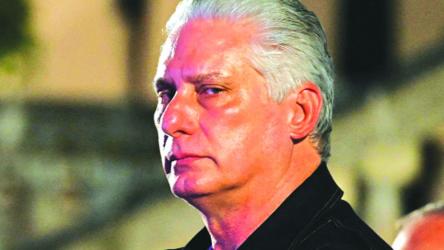Iran ready for 'war and dialogue' with US
Protesters march along a street during a demonstration to support mass protests in Iran against the regime there, in Paris. - AgencyIran said on Monday it is keeping communications ...
Rose Byrne offered a light-hearted explanation for why her longtime partner, Bobby ...

Turkey is closer to join Saudi Arabia and Pakistan defence pact

Paramedics and police officers wounded at a crash scene in Essex

Minnesota officials are being restrained from investigating ICE shooting: Reports

Andrew oligarch £15m mansion sale linked to bribery scheme

Leftist activists' attack on electric lines disrupts power supply in Berlin
The International Cricket Council (ICC) is poised to formally respond to the ...

Katrina and Vicky reveal their son’s name

Aamir Khan addresses feud with brother Faissal Khan

‘One Battle After Another’ dominates SAG’s Actor Awards

Sydney Sweeney hit film ‘The Housemaid’ set for sequel



14 September 2024 marked the 11th founding anniversary of The Asian Age, a daily English newspaper. I founded ...
A Bangladeshi-developed global social media application, Hello ...
It was long past midnight when the Fits Air’s aircraft wheels touched down on the runway of Bandaranaike International ...
China is ready to be the most trustworthy and reliable partner in Saudi Arabia's national revitalization process, Chinese Foreign ...
Nazifa Bashir Crime is an act of violation against signified rules, regulations, and laws designed ...
Studynet to Organize Australian Higher Education Roadshow 2026 in Bangladesh to Showcase Opportunities for Higher ...
Founded by seasoned veterans withalmost two decades of industry experience, Boss Man Film formerly ...
Growing up in a Bengali household, weekends were always a special time. One of the most cherished rituals was ...